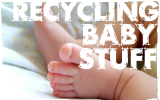We’ve had loads of really good suggestions for what to do with egg shells over the years but here are some of my favourites:
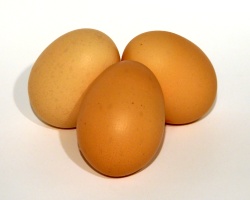 1. Feed them back to your chickens (or lizards, or dogs…)
1. Feed them back to your chickens (or lizards, or dogs…)
Eggs shells contain a considerable amount of calcium – they’re 95% calcium carbonate, with the remaining 5% being a binding protein to hold the shell together – so they can be used as a useful mineral supplement for birds, reptiles or animals.
To feed them back to chickens, bake them in a hot oven for about half an hour then crush them into small grit-sized pieces. Bake them while you’re cooking something else to be more energy efficient – it kills bacteria, makes them easier to crush and changes the taste so are less likely to encourage the hens to peck their fresh eggs. The hens will reward you by recycling the old broken egg shells into fresh new eggs!
The same baked crushed shells can be added to the food of egg-laying reptiles (same principle as chickens) but for dogs on raw food diets, most people simply blend/crush a whole fresh egg in with the dog’s other food every now and then as a calcium boost.
2. Use them for cleaning
Again, baked and crushed, they can be used as a mildly abrasive, natural way to clean stains off the insides of bottles, flasks, vases, or other hard to clean things. Place a couple of tablespoons of crushed egg shells in the container, add water, then shake, baby, shake! The egg shells should help remove stains from tea & coffee or wine, without scratching the much harder surface. After you’re done, you can tip the shelly water into your compost (see #5).
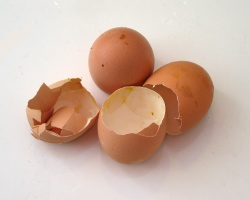 3. Make your own Sterno/heating fuel
3. Make your own Sterno/heating fuel
Again, taking advantage of all that calcium, you can turn egg shells into homemade Sterno – a long-burning heat sauce made from jellied alcohol, used instead of tealights to keep food warm or as a camping stove fuel. Full instructions on how to make it can be found on the Zen Stoves website (along with advantages and disadvantages of using Sterno as a cooking/heating method).
4. Turn them into chalk – or other pieces of art
If that’s a bit too much like a chemistry experiment for you, how about just making them into floor chalk instead? It’s a pretty easy thing to do – perfect for kids as it doesn’t involve stabbing instruments or flames.
5. Use them in the garden
Roughly crushed egg shells have traditionally been used as a slug deterrent in the gardens – the theory is if you sprinkle a circle of shell around plant stems, slugs won’t cross the sharp rough surface to get to your precious plants. It’s very much more of a deterrent than an eradication measure though and while some people swear by it, other people just swear at the continued loss of their lovely hostas.
Egg shells can also be added to the compost heap – whole shells take ages to break down but crushed ones disappear into the general matter very quickly.
More reuses or recycling ideas for egg shells…
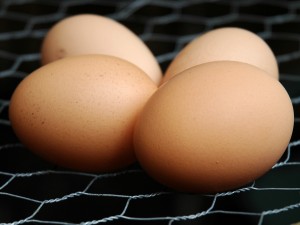 (Hi! Sorry to regular readers for the stupidly long break in posting – I’ve been reading all the comments as usual as they come in, just not posting any new content myself due to a combination of busy-ness, illness and laziness. I’m hoping to get back to regular scheduled blogging again now though!)
(Hi! Sorry to regular readers for the stupidly long break in posting – I’ve been reading all the comments as usual as they come in, just not posting any new content myself due to a combination of busy-ness, illness and laziness. I’m hoping to get back to regular scheduled blogging again now though!)


 1. Feed them back to your chickens (or lizards, or dogs…)
1. Feed them back to your chickens (or lizards, or dogs…) 3. Make your own Sterno/heating fuel
3. Make your own Sterno/heating fuel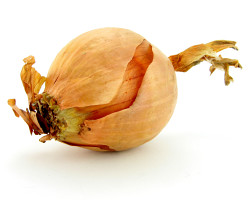 We’ve had an email from Jess:
We’ve had an email from Jess: Sometimes our little box of eggs gets lost at the back of the fridge and we forget it’s there until we fancy omelettes for tea and then we find out that they’ve gone out of date. Sigh.
Sometimes our little box of eggs gets lost at the back of the fridge and we forget it’s there until we fancy omelettes for tea and then we find out that they’ve gone out of date. Sigh.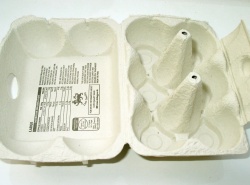 Turning over our compost bin is a ineffective nightmare. It involves precariously balancing on a metre-high brick wall and digging down, now below foot level, into the flimsy bin without using the sides of it for leverage in any way (because of the aforementioned flimsiness). Needless to say, it doesn’t get turned that often.
Turning over our compost bin is a ineffective nightmare. It involves precariously balancing on a metre-high brick wall and digging down, now below foot level, into the flimsy bin without using the sides of it for leverage in any way (because of the aforementioned flimsiness). Needless to say, it doesn’t get turned that often.